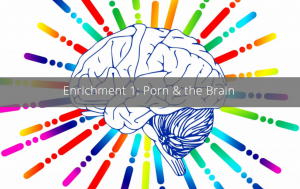You know how sometimes you just want to say “I told you so!” but you know it’s not a nice, or even helpful, thing to do? Yea, well, I found myself experiencing that smug sense of superiority for a moment today when I read that the World Health Organization (WHO) will be adding “Gaming Disorder” to its new 11th update of the International Classification of Diseases. This is what we in the field call the ICD-11. It is a coding system used by healthcare professionals that in turn allows them to get paid by the insurance companies. If something makes it on this list, it’s serious.
My brief slip into smugness was a result of five years of having people argue with me (quite heatedly at times) when I suggested that playing video games can have negative health consequences for both children and adults. I was able to maintain composure each time I was told I was “overreacting” by reminding myself that not everyone has the perspective I do. In my work as a therapist, I encounter children who can’t pay attention or stay awake because they’ve been up all night gaming, who’s minds are so overstimulated from the constant chaos of sounds, lights, colors and movement they can’t sit still for even a moment. I’ve listened to parents who are afraid of their own children and won’t take the games away because of the rage they’ve experienced when they tried. I’ve had wives tell me they were leaving their spouse or boyfriend because “all he does is play his game.” And, I’ve had personal struggles with my own child setting limits on quantity and quality of his screen time to protect his brain, often being told that “every other kid” gets to play the games with the bad stuff.
Like other important issues, it takes time for us to become aware of and accept that there is a problem before looking into making changes. It takes years of longitudinal studies to get peer reviewed articles published in professional journals. In the meantime, schools attempt to teach kids who aren’t interested, children are raised by parents who aren’t available, and worksites face employees who’ve checked out. But, hey, when I was in school it seemed like everybody smoked and yet finally, (it took decades) we learned and accepted that maybe it wasn’t such a great idea.
So for those who are concerned, need to be convinced, or, like me, are glad to have some support, here is the ICD-11 beta draft characteristics for a diagnosis of gaming disorder:
“a pattern of persistent or recurrent gaming behavior (‘digital gaming’ or ‘video-gaming’), which may be online (i.e., over the internet) or offline, manifested by:
1) impaired control over gaming (e.g., onset, frequency, intensity, duration, termination, context);
2) increasing priority given to gaming to the extent that gaming takes precedence over other life interests and daily activities; and
3) continuation or escalation of gaming despite the occurrence of negative consequences.”
The description of the condition continues:
“The behaviour pattern is of sufficient severity to result in significant impairment in personal, family, social, educational, occupational or other important areas of functioning. The pattern of gaming behaviour may be continuous or episodic and recurrent. The gaming behaviour and other features are normally evident over a period of at least 12 months in order for a diagnosis to be assigned, although the required duration may be shortened if all diagnostic requirements are met and symptoms are severe.”
For more information or just to chat, email: info@iwiseliving.com











